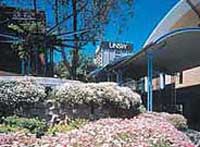Defamation and the Media - JURD7514
Faculty: Faculty of Law
School: Faculty of Law
Course Outline: See below
Campus: Sydney
Career: Postgraduate
Units of Credit: 6
EFTSL: 0.12500 (more info)
Indicative Contact Hours per Week: 3
Enrolment Requirements:
Pre-requisite: 36 UOC of JURD courses for students enrolled prior to 2013. For students enrolled after 2013, pre-requisite: 72 UOC of JURD courses.
CSS Contribution Charge: 3 (more info)
Tuition Fee: See Tuition Fee Schedule
Further Information: See Class Timetable
View course information for previous years.
Description
Recommended Prior Knowledge
Course Objectives
In particular, the broader goals of this course are: to consider the significant restraints that defamation law and associated causes of action place on what can be published by the media; and to consider whether the extent and scope of such restraints are appropriate.
These aims will be pursued through a detailed analysis of defamation law in Australia, along with some comparative material where appropriate. The course will equip students in both the theory and practice of this dynamic and complex area of media law. The focus will both on the underlying rationales for defamation law and on the development of key principles in the case law. There will be a focus on the challenge of new and social media to traditional principles and also discussion of the appropriate balancing of protection of reputation as against freedom of expression and information.
Main Topics
- History and theory of defamation law
- The rationales for the protection of reputation
- Contemporary relevance of defamation law and in the media law landscape
- Defamation litigation and the cause of action
- Defamation defences and remedies
- Defamation and the internet
Assessment
| Class participation | 20% |
| Student presentations of research abstract | 20% |
| Research Essay (5,000 words) |
60% |
Course Texts
Prescribed
Patrick George, Defamation Law in Australia, 2nd Edition (LexisNexis, 2012)
Recommended
Des Butler and Sharon Rodrick, Australian Media Law, 4th Edition (Lawbook Co, 2012)
Resources









